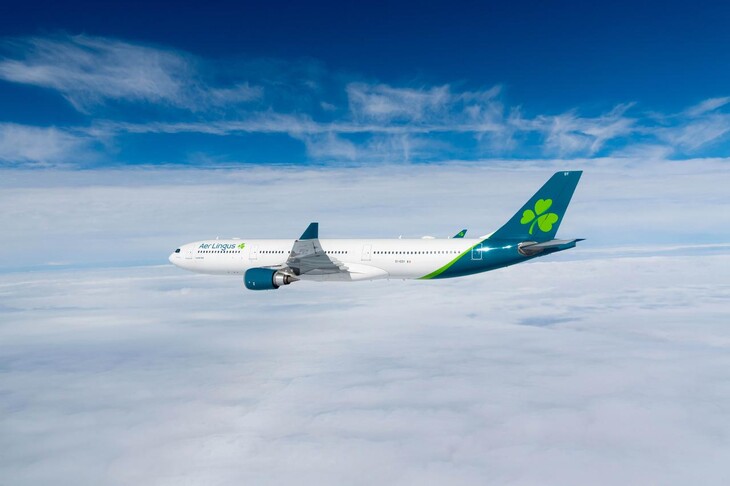Tuesday, August 13, 2024 Airlines, airBaltic, Delta, EasyJet, Lufthansa, ITA Airways, and Aegean Airlines, have suspended flights to the region, citing safety concerns. These suspensions affect key destinations such as Tel Aviv, Beirut, Amman, and Tehran, as airlines prioritize passenger and crew safety over maintaining regular operations. United Airlines has indefinitely suspended flights to Tel Aviv, while airBaltic, Delta, and Lufthansa have canceled services to Tel Aviv and other regional destinations until late August or beyond.
EasyJet and ITA Airways have extended suspensions until 2025. Additionally, Lufthansa and its subsidiaries are avoiding Iranian and Iraqi airspace. These disruptions underscore the significant impact the conflict is having on global air travel, with airlines closely monitoring the situation and adjusting their operations accordingly to ensure safety and security.

As tensions in the Middle East continue to rise, the aviation industry has been forced to respond swiftly to ensure the safety of passengers and crew. Airlines from around the world have announced temporary suspensions or adjustments to their flight operations, particularly those serving destinations in and around the conflict zone. The following details the actions taken by various international carriers in response to the ongoing situation.
Aegean Airlines , Greece’s largest carrier, has canceled all flights to and from Beirut, Amman, and Tel Aviv until August 19, 2024. The decision reflects the airline’s cautious approach in light of the deteriorating security situation in these areas. Aegean’s action underscores the importance of passenger safety and the need to reassess operations during periods of heightened risk.
Air Algerie has joined the list of airlines suspending flights to the Middle East, specifically halting all services to and from Lebanon until further notice. The Algerian national carrier’s decision is part of a broader trend among regional airlines to avoid areas affected by the conflict, highlighting the potential risks involved in continuing operations in volatile regions. Latvia’s airBaltic has canceled all flights to and from Tel Aviv until August 18, 2024.
This move reflects the growing concern among European airlines about the safety of flying into conflict zones. The suspension is a precautionary measure aimed at minimizing exposure to potential threats in the region. Air India has suspended its scheduled flights to and from Tel Aviv indefinitely.
As one of Asia’s major carriers, Air India’s decision emphasizes the global reach of the Middle Eastern conflict’s impact on air travel. The airline is closely monitoring the situation and will resume operations when it deems the region safe for its passengers and crew. Air France-KLM has taken a multi-faceted approach to the Middle East conflict, with both its French and Dutch arms adjusting their operations.
Air France extended its suspension of flights between Paris and Beirut until August 14, 2024. Meanwhile, KLM has canceled all flights to and from Tel Aviv from early August until October 26, 2024. Additionally, Transavia, a low-cost subsidiary of Air France-KLM, has canceled flights to Tel Aviv until March 31, 2025.
These decisions illustrate the complexities involved in managing airline operations amid regional instability. Delta Air Lines , one of the major U.S.
carriers, has extended its suspension of flights between New York and Tel Aviv until August 31, 2024. The extension reflects ongoing concerns about the safety of operating in the Middle East and Delta’s commitment to protecting its passengers and staff. The airline continues to monitor the situation and will adjust its operations as necessary.
EasyJe t, the UK’s leading low-cost airline, has halted all flights to and from Tel Aviv since April 2024. The airline has announced that it will resume operations on March 30, 2025, provided the security situation improves. EasyJet’s prolonged suspension highlights the long-term impact the conflict may have on air travel to the region.
Finnair has announced that it will continue to avoid Iranian airspace, a decision that may extend flight times to and from Doha. The Finnish airline’s choice to reroute flights underscores the broader concerns among airlines about the safety of flying over conflict zones, particularly those near active military operations. ITA Airways, Italy’s national airline, has extended its suspension of flights to and from Tel Aviv through August 15, 2024.
The airline’s proactive approach reflects its commitment to safety and its responsiveness to the rapidly changing security landscape in the Middle East. The Lufthansa Group has implemented a broad suspension of flights to multiple Middle Eastern destinations. Lufthansa, the group’s flagship carrier, has extended its avoidance of Iranian and Iraqi airspace and suspended flights to and from Tel Aviv, Tehran, Beirut, Amman, and Erbil until August 21, 2024.
Swiss Air Lines, another member of the Lufthansa Group, has also suspended flights to Tel Aviv and Beirut until August 21, 2024, while Austrian Airlines has canceled all flights to Amman, Beirut, Erbil, Tehran, and Tel Aviv through August 21, 2024. These widespread suspensions highlight the challenges European airlines face in maintaining operations in conflict-affected regions. Ryanair, Europe’s biggest budget airline, has canceled flights to and from Tel Aviv until August 23, 2024.
The airline’s decision is part of a broader trend among European carriers to minimize exposure to conflict zones and ensure the safety of their operations. Singapore Airlines has stopped flying over Iranian airspace, opting for alternative routes to maintain the safety of its flights. The airline’s decision reflects the broader concern among international carriers about the risks associated with flying over conflict zones in the Middle East.
United Airlines has suspended flights to Tel Aviv for the foreseeable future. The Chicago-based airline halted its daily service between Newark, New Jersey, and Tel Aviv on July 31, 2024, citing security concerns. United’s indefinite suspension underscores the heightened risk environment in the region.
Vueling, a Spanish low-cost airline owned by IAG, has canceled all flights to Tel Aviv and Amman until October 26, 2024. The airline’s decision is part of a broader reassessment of flight operations to conflict-affected areas, prioritizing passenger safety. The UK government has advised British airlines to avoid Lebanese airspace from August 8 until November 4, 2024, due to the potential risk to aviation from military activity.
This advisory is part of a broader set of precautions taken by governments and airlines to protect passengers and crew from the dangers posed by the conflict in the Middle East. The ongoing conflict in the Middle East has created a complex and evolving situation for the global aviation industry. Airlines from around the world are taking decisive action to ensure the safety of their passengers and crew, often suspending flights or rerouting them to avoid conflict zones.
As the situation develops, airlines will continue to monitor the security landscape and make adjustments to their operations as necessary. Travelers planning to visit the Middle East or transit through the region are advised to stay informed about the latest updates from airlines and government authorities to ensure safe and smooth travel..



















